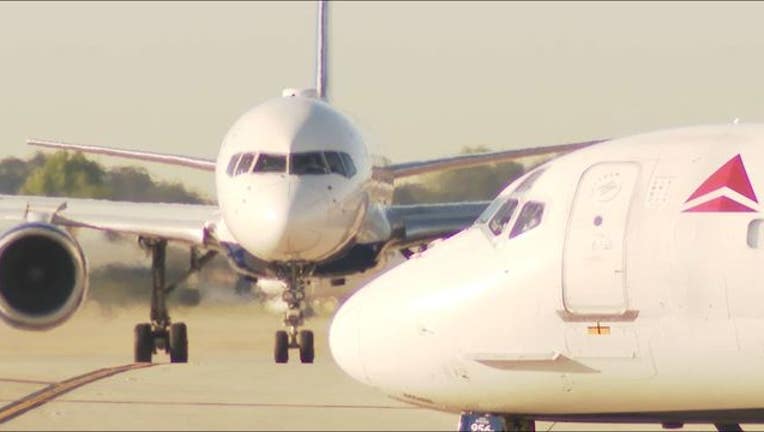Travel demand pushes ticket prices, profits higher for Delta

DALLAS (AP) - Delta Air Lines is benefiting from strong demand for air travel this summer and the grounding of Boeing Max planes at key rivals to post record revenue and a bigger profit.
The airline is aggressively adding flights and seats, but it is finding more than enough passengers to fill them, leading to even more crowded planes during the peak vacation season.
Delta said Thursday that its second-quarter profit jumped 39% to $1.44 billion. The results beat Wall Street expectations, and the airline raised its forecast of full-year earnings.
"Demand is going to continue to stay strong," CEO Ed Bastian said in an interview. "Our advance bookings are healthy, and it should be a good third quarter."
Shares of Delta, the nation's No. 2 airline by revenue, rose in trading ahead of the market opening.
There appears to be no shortage of people eager to jump on a plane. Delta passengers flew more than 63 billion miles in the April-through-June quarter, a 6.3% increase over the same period last year and roughly double the growth the airline saw in 2017 and 2018.
The Atlanta carrier boosted passenger-carrying capacity by a robust 4.7%, but average occupancy still crept higher, to 88%. At that level, many peak-hour flights are full, and even those during nights and weekends have far fewer empty seats.
The airline is seeing particular strength among its highest-paying customers. Revenue from business-class and other premium perks jumped 10% from last year's second quarter, twice as fast as revenue from selling tickets in the main cabin.
Delta is also getting a boost because rivals American Airlines and Southwest Airlines — and to a lesser extent, United Airlines — canceled thousands of flights in the quarter because their Boeing 737 Max planes were grounded after deadly crashes in Indonesia and Ethiopia. Delta does not use the plane.
Bastian estimated that the cancellation of Max flights sliced 1% to 2% off the supply of summer flights in the U.S. — a factor in pushing fares higher.
"It's not hurting us," he said, before downplaying the significance of canceled Max flights to Delta's earnings. Boeing has struggled to fix flight-control software implicated in the crashes, and now aims to submit a final package of fixes to the Federal Aviation Administration in September. Bastian said, however, "I think it's going to take longer than people expect" before the plane flies again.
Bastian said Delta is also benefiting slightly from a large number of other cancellations on American Airlines, which is suing its own mechanics and accusing them of conducting an illegal work slowdown.
Delta's second-quarter profit was $407 million higher than a year ago. Adjusted earnings per share were $2.28, 6 cents better than Wall Street expected, according to a survey of analysts by Zacks Investment Research.
Revenue rose 6% to a quarterly record of $12.54 billion, also beating expectations.
Delta Air Lines Inc. said it now expects 2019 earnings of $6.75 to $7.25 per share, up from an earlier forecast of $6 to $7 per share.

